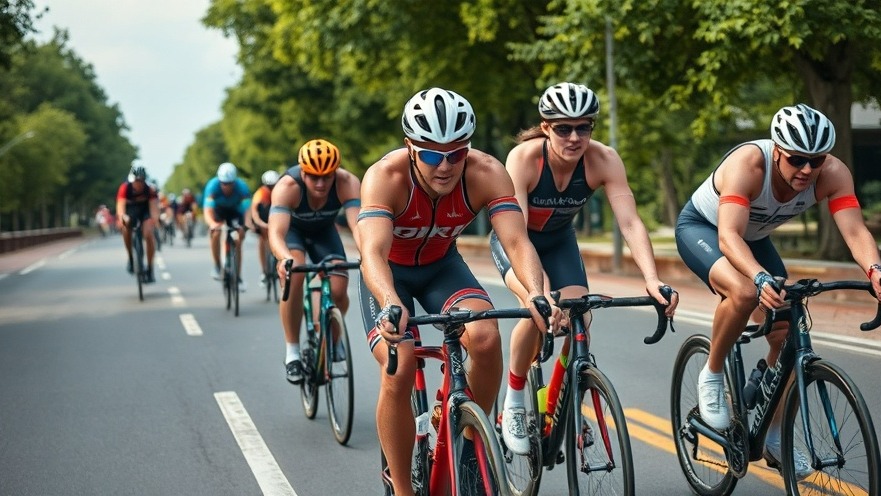
Understanding the Importance of Triathlon Recovery
Completing a triathlon is no small feat; the rigorous swim, bike, and run tests even the most prepared athlete. While many triathletes focus intensely on the training and performance aspects of the race, the critical phase of recovery is often overlooked. Just as a well-planned training regimen is essential, so too is a clearly defined recovery strategy. Recovery isn't just about feeling good after the race; it's about maximizing performance and preventing injuries in future events.
The Science Behind Cold Therapy
One of the cornerstone techniques for recovery after a triathlon is the ice bath. Emerging research shows that cold water immersion can significantly reduce inflammation and muscle soreness, highlighting its importance in the recovery toolkit. By constricting blood vessels, this method reduces swelling and can help clear lactic acid from the muscles more efficiently. Spend no more than 20 minutes in an ice bath for optimal benefits, as prolonged exposure can lead to other complications.
Nutrition: Fueling Recovery
Nourishing the body post-race is essential for recovery. Aim to consume a meal rich in carbohydrates and protein within 30 minutes after finishing. This practice aids in replenishing glycogen stores and supports muscle repair. Quick and convenient options like a peanut butter and jelly sandwich or a protein smoothie can set the stage for a successful recovery regimen. Over time, a focus on balanced nutrition will not only support recovery but also contribute to better performance in future races.
Hydration Strategies: Know Your Needs
After the intense exertion of a triathlon, many athletes underestimate the importance of rehydrating. It’s crucial to drink adequate amounts of water, ideally two cups for every pound of weight lost during the race. However, overhydration is a risk; listening to your body and monitoring urine color can guide you in achieving proper hydration levels. Hydration not only helps physical recovery but also has far-reaching effects on cognitive performance, energy levels, and overall mood.
The Role of Rest in Recovery
Establishing a resting period after a triathlon is not only recommended but necessary. Depending on the race length and intensity, you may require different recovery durations. After shorter events, three days of rest may suffice, while longer races could necessitate up to five days of recovery followed by gradual reintroduction to training. Rest allows the body to heal and adapt, preventing burnout and injuries that could sideline you for future events.
Dampening the Mental Stress of Competition
A triathlete’s journey is not solely physical; mental health is equally important. The pressure and stress surrounding competitive events can accumulate, which is why incorporating relaxation techniques after the race can facilitate mental recovery. Engaging in light activities such as journaling, meditation, or even participating in leisure activities can boost your mental well-being. Finding outlets for stress can significantly enhance your overall experience and prepare you for future challenges.
Common Post-Race Recovery Misconceptions
Despite the wealth of information available, some misconceptions about post-race recovery persist. For instance, many athletes believe that they can return to training immediately after a race without consequence. However, overlooking the recovery phase can lead to burnout or injuries. It's vital to acknowledge that rest and ongoing self-care, including mindfulness practices and gentle stretching, play critical roles in preparing you for your next competitive outing.
Why Concierge Medical Practices Should Promote Recovery Strategies
For medical concierge practice owners, understanding the niche needs of triathletes is crucial. By offering specialized wellness strategies that encompass nutrition, hydration, mental health, and physical recovery, practices can elevate their reputation in the community. Patient education around effective recovery techniques can lead to stronger patient relationships and better health outcomes, positioning your practice as a trusted resource for wellness.
Final Thoughts: Prioritize Your Recovery
Remember, your recovery process starts the moment you cross the finish line. By adopting these practices and creating an individualized recovery plan, you can ensure longevity in your athletic pursuits. If you’re a medical concierge practice owner, consider integrating wellness strategies for athletes into your offerings, emphasizing the holistic approach to patient care.
 Add Row
Add Row  Add
Add 




Write A Comment